Abstract
The age at which retinopathy of prematurity was first seen was determined in 143 infants. In all, the initial ophthalmological examination was normal. Birth weights varied from 630 to 2700 g and gestational ages from 24.5 to 40.0 weeks. The median postnatal age at which acute retinopathy of prematurity was first seen was 51 and 40 days for those less than 28 and greater than or equal to 28 weeks' gestational age, respectively, and this difference is highly significant. Similar results were obtained when infants were grouped according to birth weight less than 1000 or greater than or equal to 1000 g. Using postmenstrual age as the variable, the first signs of retinopathy of prematurity were seen over a fairly narrow age range and 86% of infants developed retinopathy between 32.5 and 38.5 weeks of age. These findings suggest that the age (but not the occurrence or severity) at which retinopathy of prematurity is first seen is controlled predominantly by stage of development rather than neonatal events.
Full text
PDF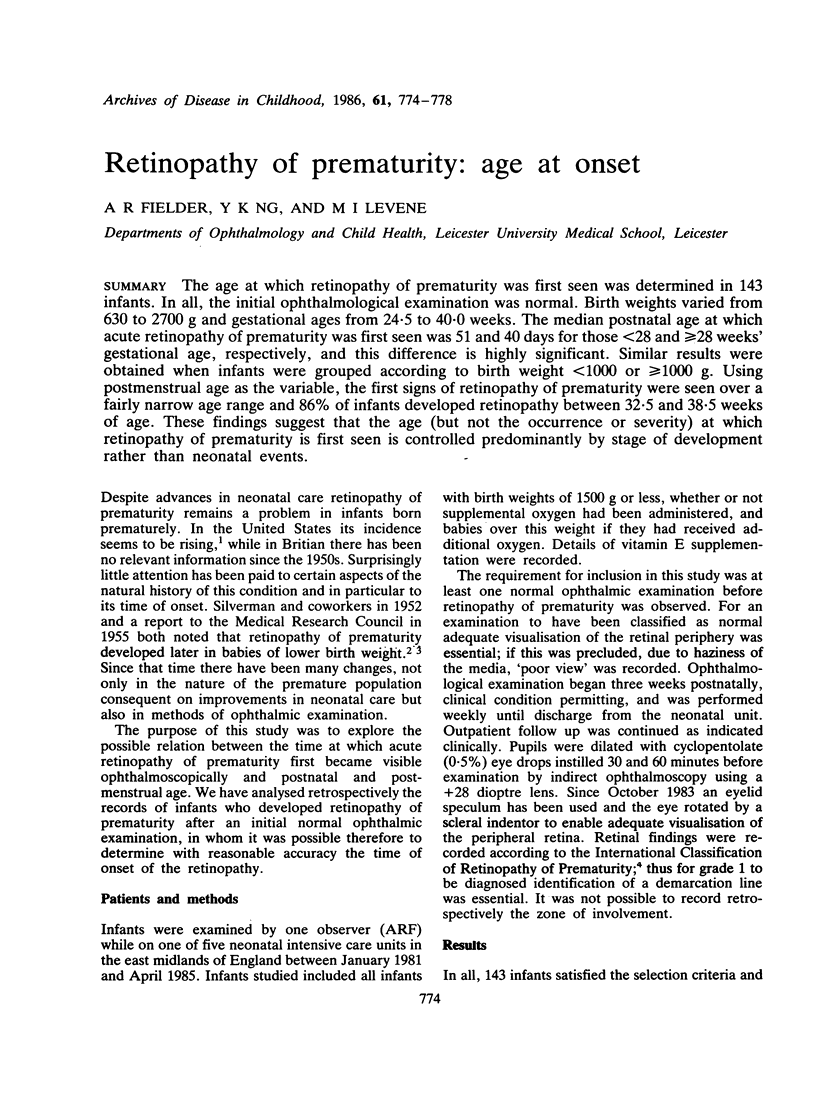
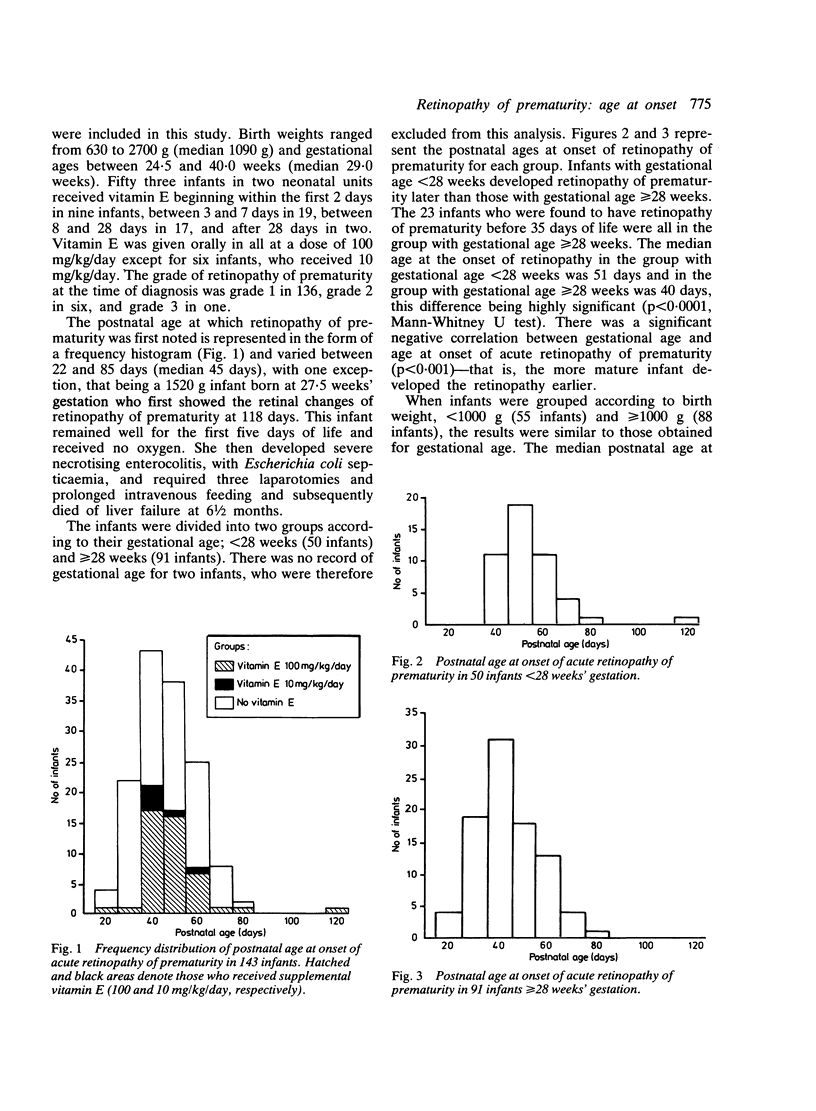
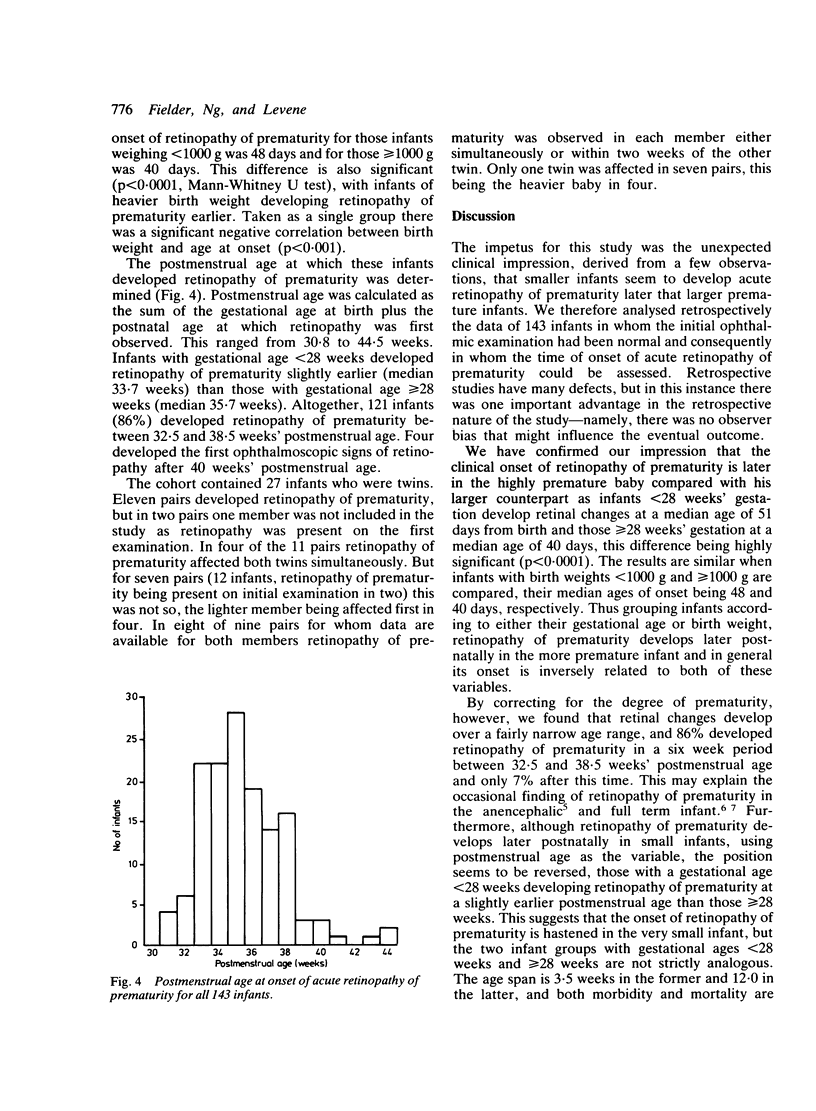
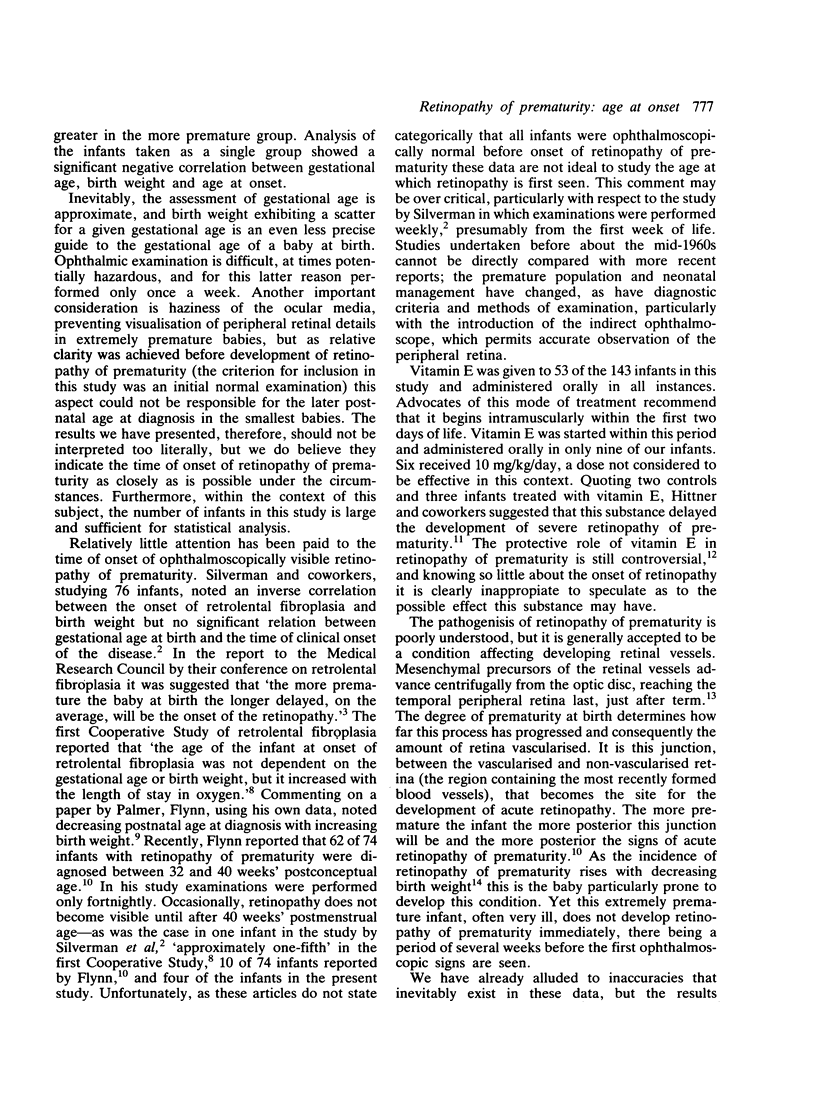
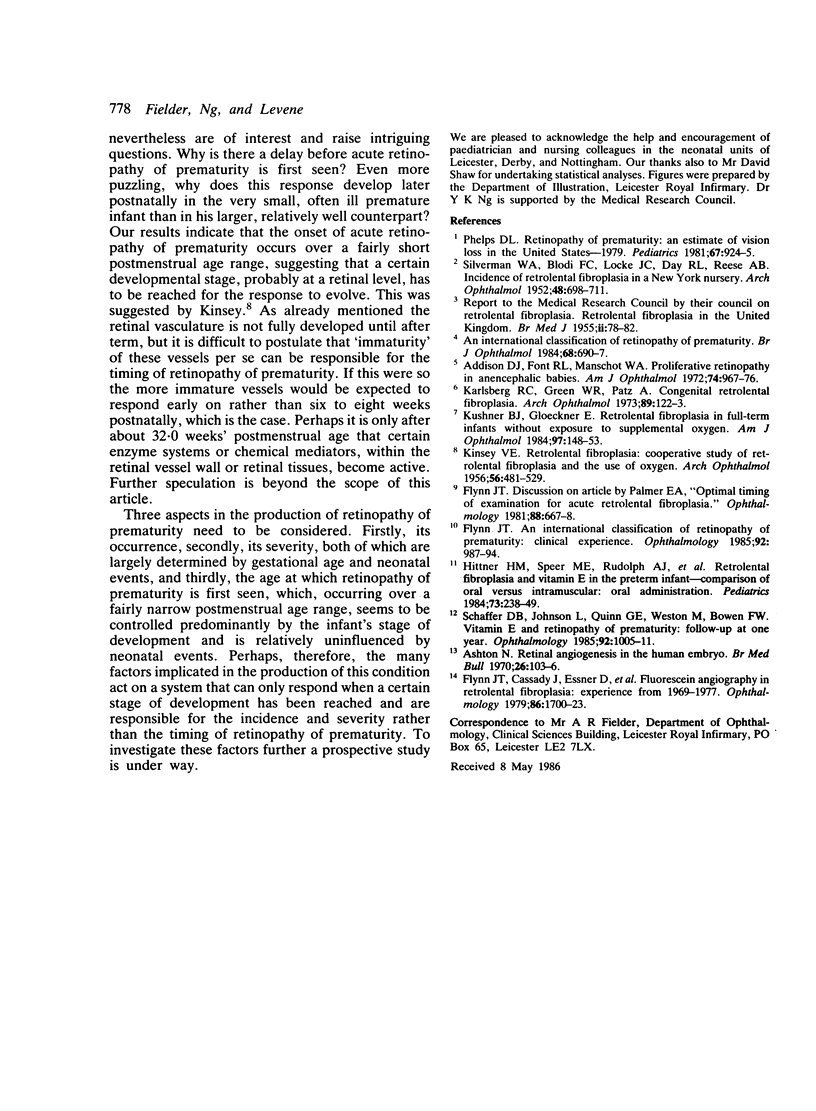
Selected References
These references are in PubMed. This may not be the complete list of references from this article.
- Addison D. J., Font R. L., Manschot W. A. Proliferative retinopathy in anencephalic babies. Am J Ophthalmol. 1972 Nov;74(5):967–976. doi: 10.1016/0002-9394(72)91220-2. [DOI] [PubMed] [Google Scholar]
- Ashton N. Retinal angiogenesis in the human embryo. Br Med Bull. 1970 May;26(2):103–106. doi: 10.1093/oxfordjournals.bmb.a070758. [DOI] [PubMed] [Google Scholar]
- Flynn J. T. An international classification of retinopathy of prematurity. Clinical experience. Ophthalmology. 1985 Aug;92(8):987–994. doi: 10.1016/s0161-6420(85)33919-2. [DOI] [PubMed] [Google Scholar]
- Flynn J. T., Cassady J., Essner D., Zeskind J., Merritt J., Flynn R., Williams M. J. Fluorescein angiography in retrolental fibroplasia: experience from 1969-1977. Ophthalmology. 1979 Oct;86(10):1700–1723. doi: 10.1016/s0161-6420(79)35329-5. [DOI] [PubMed] [Google Scholar]
- Hittner H. M., Speer M. E., Rudolph A. J., Blifeld C., Chadda P., Holbein M. E., Godio L. B., Kretzer F. L. Retrolental fibroplasia and vitamin E in the preterm infant--comparison of oral versus intramuscular:oral administration. Pediatrics. 1984 Feb;73(2):238–249. [PubMed] [Google Scholar]
- KINSEY V. E. Retrolental fibroplasia; cooperative study of retrolental fibroplasia and the use of oxygen. AMA Arch Ophthalmol. 1956 Oct;56(4):481–543. [PubMed] [Google Scholar]
- Karlsberg R. C., Green W. R., Patz A. Congenital retrolental fibroplasia. Arch Ophthalmol. 1973 Feb;89(2):122–123. doi: 10.1001/archopht.1973.01000040124014. [DOI] [PubMed] [Google Scholar]
- Kushner B. J., Gloeckner E. Retrolental fibroplasia in full-term infants without exposure to supplemental oxygen. Am J Ophthalmol. 1984 Feb;97(2):148–153. doi: 10.1016/s0002-9394(14)76084-2. [DOI] [PubMed] [Google Scholar]
- Phelps D. L. Retinopathy of prematurity: an estimate of vision loss in the United States--1979. Pediatrics. 1981 Jun;67(6):924–925. [PubMed] [Google Scholar]
- SILVERMAN W. A., BLODI F. C., LOCKE J. C., DAY R. L., REESE A. B. Incidence of retrolental fibroplasia in a New York nursery. AMA Arch Ophthalmol. 1952 Dec;48(6):698–711. doi: 10.1001/archopht.1952.00920010710005. [DOI] [PubMed] [Google Scholar]
- Schaffer D. B., Johnson L., Quinn G. E., Weston M., Bowen F. W., Jr Vitamin E and retinopathy of prematurity. Follow-up at one year. Ophthalmology. 1985 Aug;92(8):1005–1011. doi: 10.1016/s0161-6420(85)33913-1. [DOI] [PubMed] [Google Scholar]


